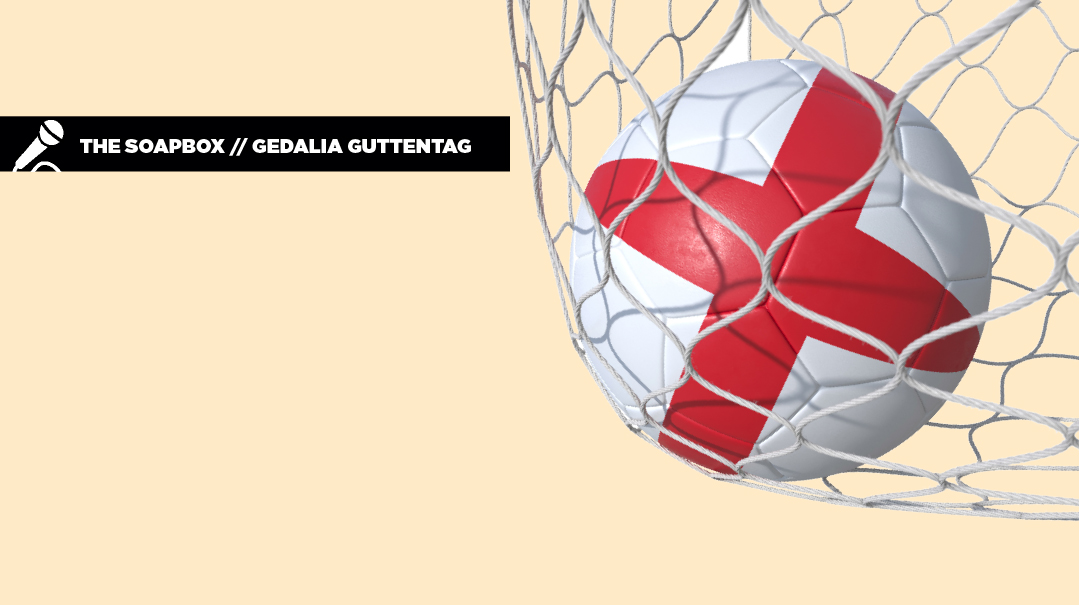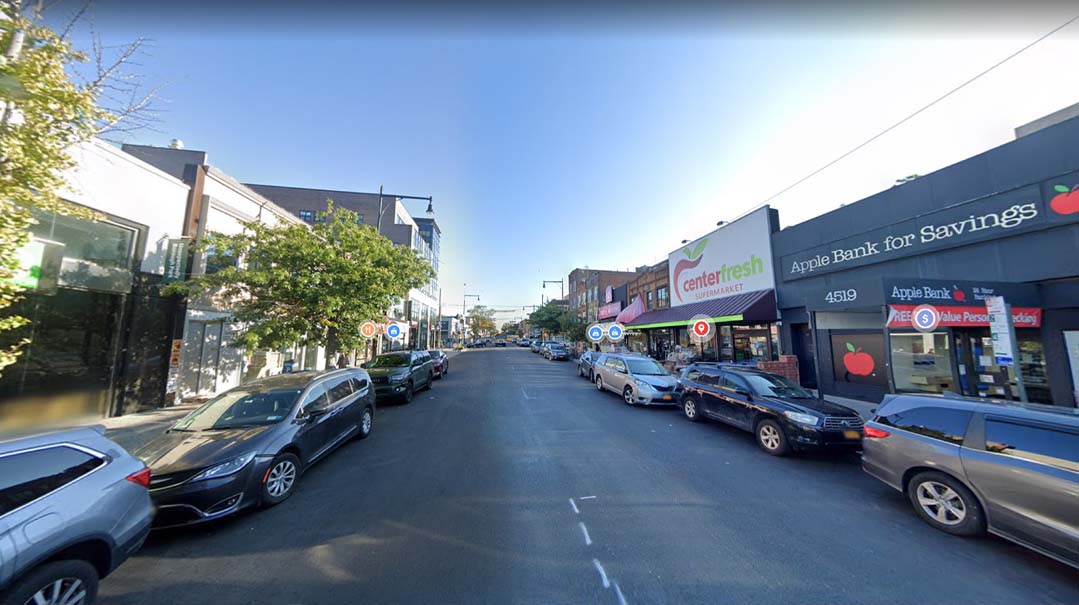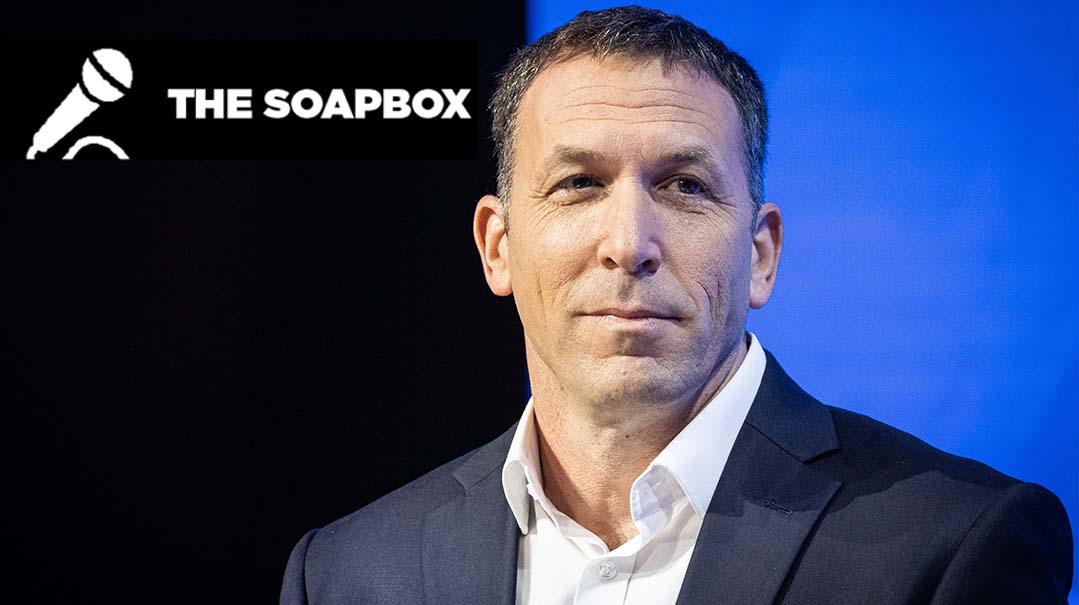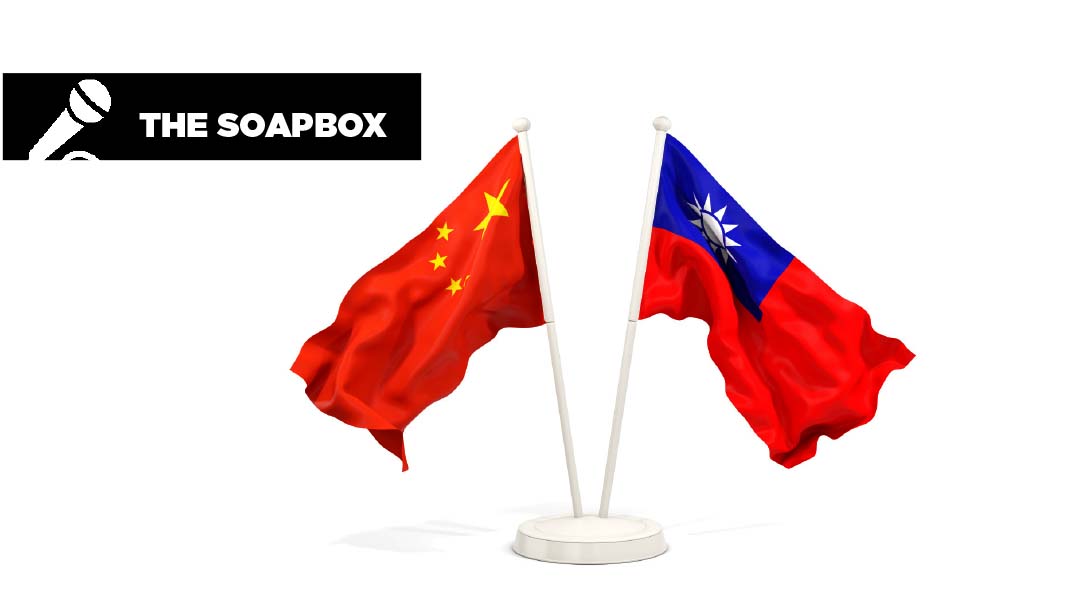Not Just a Game

Why soccer should matter to Britain's frum community

In case it had escaped readers’ attention, this magazine doesn’t do sports. Where other outlets dedicate the back pages to the doings of muscular athletes, ours are occupied by the Kichels, many of whom are in need of a workout.
So rest assured: Despite the football (soccer) delirium that enveloped England over the last few weeks as the country progressed to the finals of a European championship for the first time since 1966 (they lost), this publication still thinks that the entire performance is just some men kicking a ball around.
Righteous disclaimer aside, there was something about the patriotism that gripped the country that should matter to Britain’s frum community. Noisy, flag-waving patriotism has long been out of fashion in many parts of modern England; on some parts of the left, the English flag is rejected as being a racist symbol.
Suddenly, that flag was everywhere. As Douglas Murray put it, “For the first time in years it was flying widely and proudly in the land. In the UK we have seen almost everything about our identity, from the flag to patriotic songs, derided. Our country seems to be remembering the positive sides of national identity.”
The feeling that there was something special in the air was so widespread that even the left-wing killjoys at the Guardian had to scramble to deny that anything was afoot: “Far from ushering in an era of inclusivity, victory would stoke ugly nationalism,” it warned.
In all likelihood, both hopes and fears were wrong. Sport can generate flag-waving spectacles, but alone, it’s not enough to sustain true national feeling. When the fans go home and the warm glow of victory subsides, the reality that Murray fears sets in: “In the absence of national feeling, you do not create the perfect human being,” he writes. “You simply have other forms of identity that muscle in to try to take over the space where decent national belonging once sat.”
And to Britain’s fast-growing Torah community, that void has very real consequences. The so-called “chinuch crisis” of a couple of years ago, in which government agencies sought to ram anti-Torah content down children’s throats, has thankfully subsided.
But the push to teach tolerance from which the crisis stemmed can be traced to the void left by an attenuated British identity. In the 1960s, in parallel with the country’s decline on the world stage, an assault on its identity by the Left took place. In its place, a new societal creed, known as “multiculturalism,” posited that there was no one dominant aspect of national identity.
On the back of the Islamic terror of the previous decade, then–prime minister David Cameron declared multiculturalism dead, and the search for a reinvigorated British identity was on. It didn’t take long for left-wing-oriented policymakers to latch onto “muscular liberalism” and tolerance for so-called “alternative lifestyles” as the new creed, and the chinuch crisis was born.
All of which means that for Britain’s frum community, football can’t be dismissed as just a game. With the country in mourning for goals missed (literally), the search for a national identity goes on. Until modern Britain learns to tolerate religious conservatism, frum Jews will pay the penalty.
(Originally featured in Mishpacha, Issue 869)
Oops! We could not locate your form.













